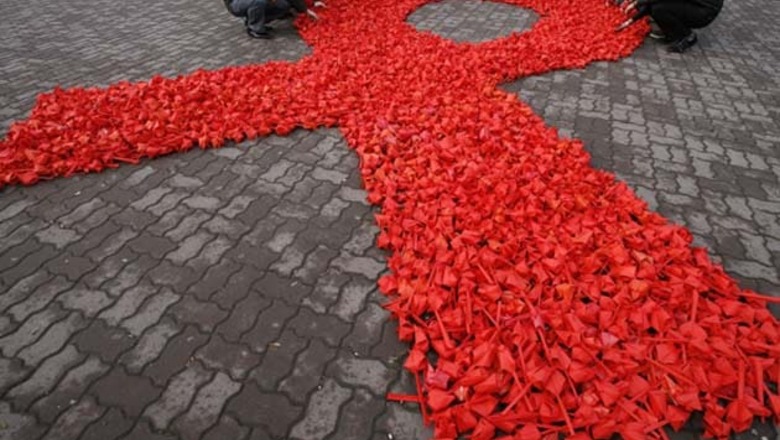
views
Berlin: German researchers are reporting that they may have cured a man of HIV infection, using a mix of high-dose chemotherapy, radiation and stem-cell transplant.
If true, that would represent a scientific advance, but not necessarily a treatment advance, said researchers familiar with the work.
In the study, published last week online in the journal Blood, researchers at Charite-University Medicine in Berlin treated an HIV-infected man who also had acute myeloid leukemia - a cancer of the immune system - by wiping out his own immune system with high-dose chemotherapy and radiation and giving him a stem-cell transplant. Stem cells are immature cells that can mature into blood cells.
At the time of the transplant, which occurred in February 2007, the patient, in his 40s stopped taking anti-HIV drugs. Thirteen months later, after a relapse of the leukemia, he underwent a second round of treatment followed by another stem-cell transplant from the same donor, CNN reported.
The donor's stem cells contained a rare, inherited gene mutation that made them naturally resistant to infection with HIV, according to the authors, led by Kristina Allers, who hypothesised that HIV would nevertheless rebound over time.
But that has not happened, the report said.
After three-and-a-half years off of anti-HIV drugs, the patient shows no sign of either leukemia or HIV replication and his immune system has been restored to normal health, the researchers reported, concluding, "our results strongly
suggest that cure of HIV has been achieved in this patient."
But AIDS researchers predicted the report will have little impact on practice.
"This probably is a cure, but it comes at a bit of a price," said Dr Michael Saag, professor of medicine and director of the University of Alabama at Birmingham AIDS Centre.
"For him to receive the donor cells, his body had to have all of his immune system wiped out" and then receive a bone marrow transplant, Saag noted.
The treatment associated with wiping out the immune system "is very hazardous," he said.
"Even if somebody doesn't die from a transplant, there are complications that make it very unpleasant for people to live with," he said, citing graft-versus-host disease, where the infused donor cells attack the body.
Further limiting the treatment's potential appeal is the fact that it could cost hundreds of thousands of dollars for each patient who gets it, he said.
"It's not going to be applicable unless they develop leukemia or lymphoma and need a bone-marrow transplant," Saag said.
According to the World Health Organisation, 33.4 million people worldwide have the virus that causes AIDS.



















Comments
0 comment